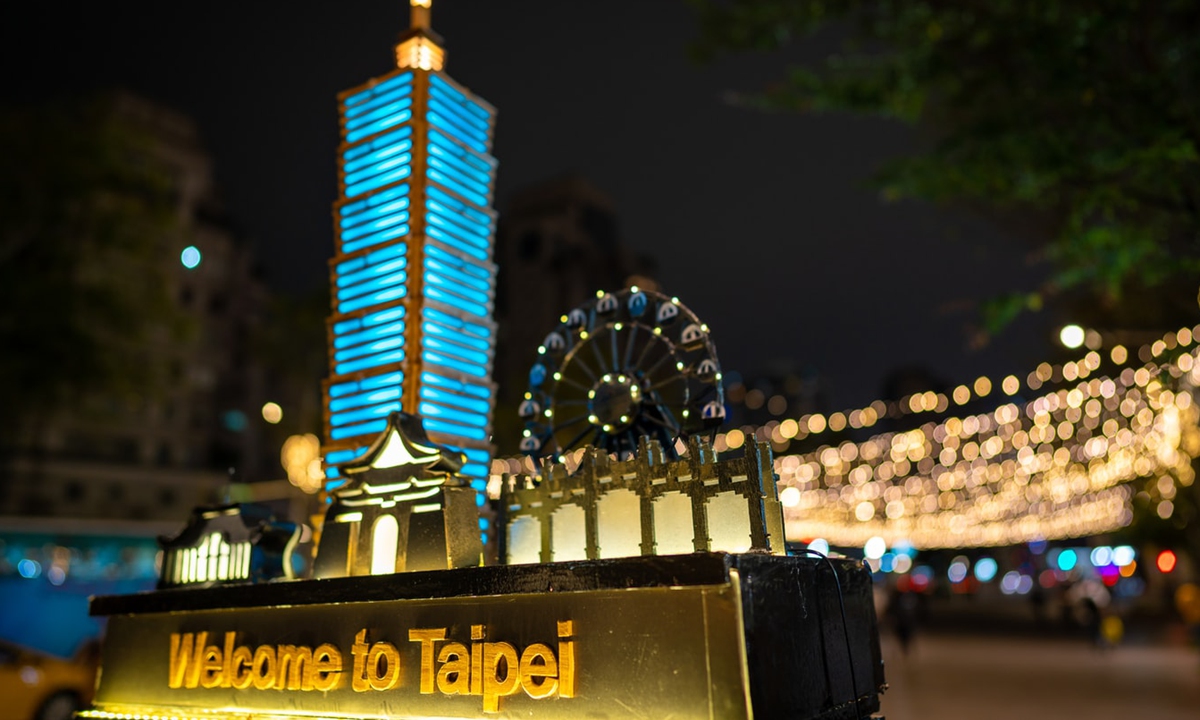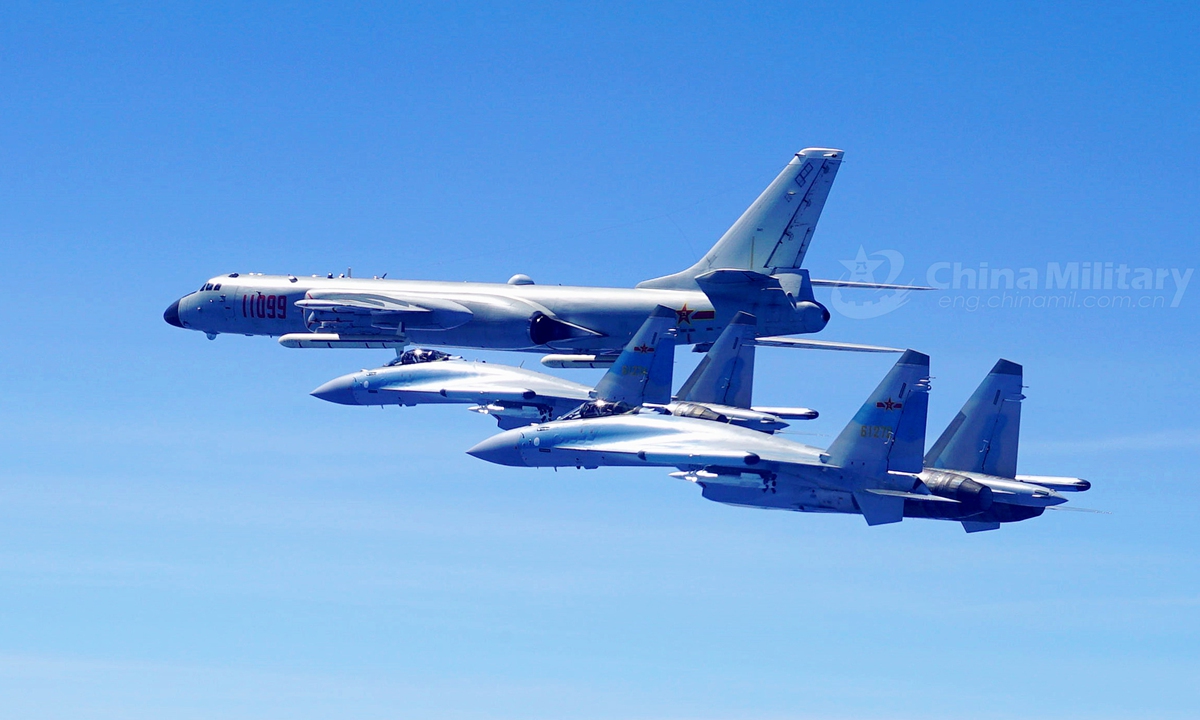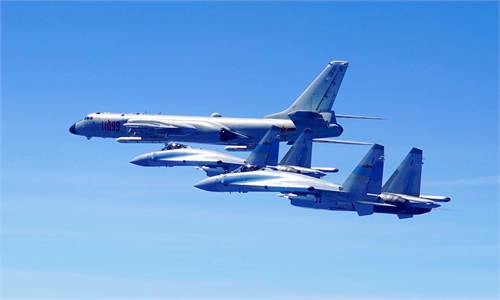Mainland, not US, to decide time of national reunification
US risks triggering a fight
it cannot win: observer

Taiwan Photo: Unsplash
The Chinese mainland will not let the US decide when and how to reunify the island of Taiwan, and as the People's Liberation Army (PLA) has an overwhelming advantage in the region, reunifying Taiwan by force is not urgent as long as the separatist authority on the island and Washington do not cross the red line, said mainland experts on Sunday in response to a sensational projection by a US Navy think tank that the mainland could launch an attack on Taiwan in January, 2021.
In an essay published by the US Naval Institute (USNI), former Deputy Director of the Central Intelligence Agency Michael Morell and retired US Admiral James Winnefeld painted a scenario that the Chinese mainland would reunify Taiwan by force in mid-January 2021. According to the two authors' prediction, Beijing considers that the West at that time would be distracted by the post-election power transition in the US, as well as the ongoing COVID-19 pandemic, so the mainland would see the timing as a significant chance to realize reunification once and for all.
Mainland analysts rejected the projection of Morell and Winnefeld, as the mainland still upholds a desire for peaceful reunification. The priority for China has been and continues to be development and economic recovery in a post-pandemic era. If there is any serious tension or even a military clash in the Taiwan Straits, it could only be triggered by the separatist authority on the island and the US. The mainland will not unilaterally create tensions over the Taiwan question, which would be a distraction from its own development.
Song Zhongping, a Chinese mainland military expert, told the Global Times on Sunday that arms sales and official exchanges between the US and the separatist authority of the island are making the situation more tense, but as long as the red line set by the Anti-Secession Law is not violated, it is unnecessary for the mainland to react to the prediction made by the US, as China has its own plan and timeline.
According to the Anti-Secession Law, in the event that "Taiwan independence" secessionist forces should act under any name or by any means to cause the fact of Taiwan's secession from China, or that major incidents entailing Taiwan's secession from China should occur, or that possibilities for a peaceful reunification should be completely exhausted, the state shall employ non-peaceful means and other necessary measures to protect China's sovereignty and territorial integrity.
"As the law states, the bottom line is clear. If those incidents happen, the People's Liberation Army must react immediately, regardless of whether there is a power transition in the US or not. If US provocations don't touch the bottom line, China should and will retain its policy of strategic patience to avoid an escalation of the current tension, especially before January 2021," Song said. But the Trump administration could become increasingly irrational as polling so far does not favor his reelection and his campaign could adopt more reckless tactics, experts also warned.
Lü Xiang, a research fellow at the Chinese Academy of Social Sciences in Beijing, told the Global Times on Sunday that using the power transition of the US as a window to attack Taiwan is nonsense, because China's priority this year and next is not reunification, as economic recovery in the post-pandemic era is much more urgent and important.
"But there is a danger of war as the Trump administration is trying very hard to provoke China. Just like the enactment of the national security law for Hong Kong this year, if China is provoked too much, it will take action to respond at an appropriate time with its own plan, and the US will surely feel the pain," he noted.

Two Su-35 fighter jets and a H-6K bomber fly in formation on May 11, 2018. The People's Liberation Army (PLA) air force conducted patrol training over China's island of Taiwan on Friday. Su-35 fighter jets flew over the Bashi Channel in formation with the H-6Ks for the first time, which marks a new breakthrough in island patrol patterns, said Shen Jinke, spokesperson for the PLA air force.Photo:China Military
More and more dangerous
The separatist authority of Taiwan has formally signed an agreement with US arms firm Lockheed Martin to buy 66 F-16V fighter jets, reports said Saturday, further raising tensions in the Taiwan Straits, and coming just two days after the PLA announced large-scale drills in response to US provocations and Taiwan secessionist activities.
While the deal was approved by the Trump administration last year and a formal signing was expected to take place sooner or later, its announcement at this particular time is believed to be yet another US provocation and a step on the red line of the Taiwan question, which further risks confrontation, Chinese mainland experts said on Saturday, adding that the People's Liberation Army (PLA) is aiming not only to deter, but also to hone its combat capability of being able to launch military action when necessary.
By announcing that the F-16 deal has been finalized, the US is attempting to show its tough stance, and the move could be considered as reacting to recent Chinese military drills, Ni Feng, director of the Institute of American Studies at the Chinese Academy of Social Sciences, told the Global Times.
Under these circumstances, the US move is even more dangerous, as it steps on and even crosses the Chinese mainland's red line on the Taiwan question, Ni said, noting that the risk of a military confrontation continues to rise.
'First battle, last battle'
However, it seems as if the US is trying to trigger a fight it cannot win. The essay published by the USNI came after former leader of the Taiwan region Ma Ying-jeou said in a speech on August 10 that if the Chinese mainland decides to reunify the island by force, "the first battle is the last battle," and the US military will not come to the island's rescue nor will there be time for it to come.
In the essay, Winnefeld and Morell believe an operation launched by the mainland will be over in only three days.
A military expert at a Beijing-based military academy who asked for anonymity told the Global Times that US strategists are very clear that they will have no time or capability to interrupt a massive military operation launched by the PLA to reunify Taiwan, so the best option is to persuade US policymakers not to provoke China too much nor play a game of brinkmanship, as the US will get nothing from such risky behavior.
The PLA can launch airborne operations, landing operations, airstrikes and can bomb military targets at the same time. Cyber attacks will paralyze all communication, transportation and even energy supply systems on the island in just a few minutes, and special forces will seize and control some important facilities such as airports to allow reinforcements into major cities on the island. The separatist leaders of the island will be eliminated or captured on the first day, and there is no chance for foreign forces to intervene, he noted.
"Apart from a war, the PLA is capable of deterring US provocations, as well as the separatist authority on the island, in many ways, such as live-fire missile drills in the east waters of Taiwan Island and near Guam, sending bombers and fighter jets to fly over the 'airspace' of the island," he said.


